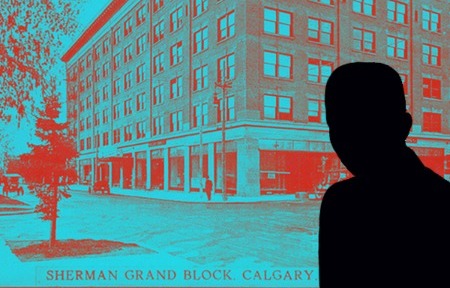FRINGE 2019: Black Albertan ponders his past in worthy, yet flawed play
Posted on August 21, 2019 By Derek Owen Entertainment, Front Slider, Theatre
 Balance Board
Balance Board
Stage 13 (Old Strathcona Public Library)
This local piece by Bashir Mohamed tells the story of an Alberta youth motivated to discover his identity as a black person after being embarrassed in class during a racially and culturally insensitive exchange with a teacher. He ends up tasking himself to discover what exactly it means to be a black person living in a place where there hasn’t been, well, a lot of black history. So where does he go? Why, the library of course – as if a play produced by the Provincial Archives of Alberta would go somewhere else.
The kid finds a historical lead to a possible answer – and follows it, with mixed results, for him as well as the audience.
The example he picks is an obscure and apparently incompletely-documented court case from Calgary in the mid-20th Century concerning a black man who sued a company for damages because he was barred from an event because of the colour of his skin. A bit of a odd choice, given there are clearly better examples for those with even a cursory knowledge of Alberta black history. What about Amber Valley, the community established by early 20th Century black immigrants from the United States an hour and change North of Edmonton? Or, Violet King Henry, not just the first black graduate of the University of Alberta law school, but the first female graduate? Or, more relative to a young man, an American football player named Johnny Bright, the victim of a racially-motivated attack during an American college football game that, quite remarkably for the time, ended up being captured on camera (Oklahoma State University did not apologize for the incident until 2005, 54 years after the event and 22 years after Bright’s death). He ended up finding success and acceptance here in Edmonton once he began playing for the Eskimos in the mid 1950s.
These all seem like better choices with more opportunity for dramatic exploration. But instead we get lengthy court room exchanges, likely lifted right off a transcript from some – yes, you can say it – archive.
Educational, sure, and the acting from Onita Henry and Shingai Madawo is evocative, but this play is boring.
The producers deserve full points for not taking a Hollywood route with the ending. The directness of the final message that discovering one’s identity is a process that occurs over time, not the result of a singular or revelatory event, is refreshing in its simple, honest truth.
2 out of 5













